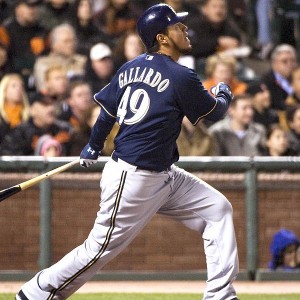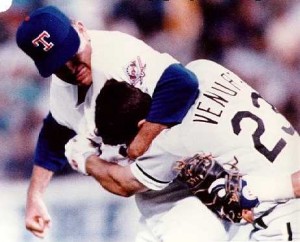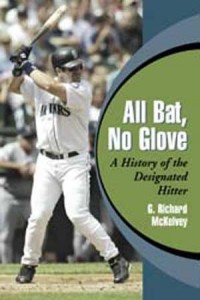By Jake McCormick
It’s easy to make a case for the designated hitter. It sells baseball. The American League scores more runs per game than the National League, pitcher at-bats are typically sacrifice bunts or half swing strikeouts, and chicks simply dig the long ball. Since the DH was implemented in 1973 on the grounds that run scoring was scarce and revenue was suffering, the American League has evolved along the same lines of MTV and VH1.

Proponents like to argue that people against the DH are against it because of baseball “tradition,” but that is far from the truth. I’ve fully accepted that if there is a change to universal MLB rules, it will benefit the DH because money drives the change bus.
I’m not saying that pitchers should hit because it’s tradition, I’m saying pitchers should hit because they are asked to do everything else expected of a fielder. So when he releases the ball, should the pitcher be allowed to just stand off to the side, and just check out until he receives the ball again? It’s not an issue of tradition, it’s an issue of consistency. Does Edgar Martinez deserve to be in the Hall of Fame? There’s a reason it’s a controversial issue, and it has nothing to do with tradition. He never had to field or throw a ball, and basically took his hacks three to four times a game and returned to the bench. It doesn’t make sense to allow players to only have to use one set of skills required for the sport while other similar players are asked to make the full 162-game effort in the field and at the plate. As a recent Onion headline read, “Designated hitter given day off from standing up four times.”
The DH is typically a power hitter with average to poor fielding skills. The position sometimes allows players considered past their prime to continue playing a couple extra years while their once-nimble knees fill with fluid. This tends to be more of a rarity now, as the DH has been around long enough that players start their careers at the position.

Having the DH in one league and not the other also changes a pitcher’s strategy and could possibly be more dangerous for the hitters. Randy Johnson, who has pitched in both leagues, said “If you’re the pitcher and you’re playing in the American League, then you may have a tendency to throw inside a little bit more knowing that when the ninth hole comes up, you won’t be hitting. You’re protected in that regard.”
Statistically, it is rare that a pitcher is going to take a plunking because they are considered easy outs, but if 
I’m in the decreasing minority of DH-haters, but I’ll admit it is a lot more comforting to know that the nine-hole hitter can actually swing the bat. That doesn’t mean I need to agree with the dumbing down of a game that I was drawn to because of its chess-like nature of play. No matter what change (or lack thereof) lies ahead, I’ll always maintain that NL baseball, however boring, is the only style that holds true to the definition of the sport.
